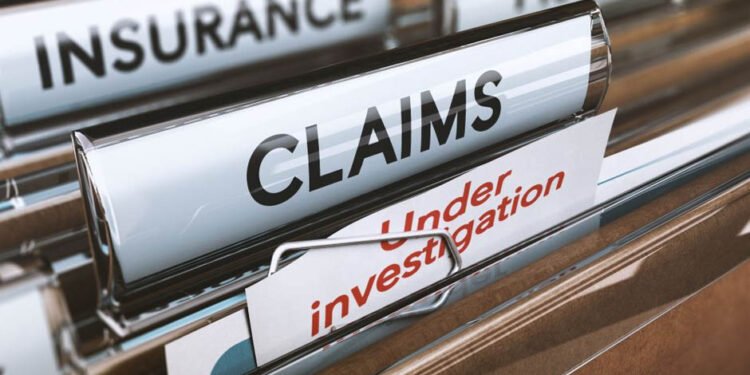When disaster strikes, navigating homeowner insurance claims for a damaged house can feel too hard. Whether it’s a natural disaster, fire, or unforeseen plumbing mishap, all the processes can feel too much.
That’s why understanding how to effectively navigate the insurance claims process can help. Knowing your rights and the claims process is essential.
So read on to learn more!
Understanding Your Insurance Coverage
Your first step should be a thorough review of your homeowner’s insurance policy. Knowing your insurance coverage details is crucial. It helps you understand what exactly is covered in the unfortunate event of a loss.
Coverage can vary widely from one insurance policy to another. Here’s a closer look at some of the main components of a homeowners insurance policy:
Dwelling Coverage
Dwelling coverage is a fundamental aspect of your homeowners insurance policy. It protects the physical structure of your home against specific perils. This includes fire, windstorms, hail, vandalism, and certain types of water damage.
You need to ensure that your dwelling coverage amount reflects the current rebuilding cost of your home. This can fluctuate over time due to market conditions and home improvements.
Personal Property Coverage
Your personal things are protected by personal property coverage in case of loss, damage, or theft. This covers goods including apparel, appliances, electronics, and furnishings.
Many policies cover personal property at a certain percentage of the dwelling coverage amount. It’s important to take an inventory of your possessions.
You need to consider whether you need additional coverage for high-value items. This includes jewelry or art, which might exceed standard policy limits.
Some policies offer replacement cost coverage. This means you’d receive funds to replace damaged items at current market value. You won’t get their depreciated value.
Liability Protection
Liability protection is another critical component of homeowners insurance. It provides coverage in case someone is injured on your property. This could include accidents like slips and falls or injuries sustained while using your property (e.g., a tree falling on a neighbor’s car).
Liability coverage helps pay for medical expenses, legal fees, and damages awarded in lawsuits, up to the policy’s limits. It’s advisable to assess your liability coverage to ensure it aligns with your personal circumstances. This can vary depending on lifestyle, property use, and local risks.
Steps to Take After Damage Occurs
Once you’ve assessed the situation following damage to your property, you can move on to the next step. Here are essential steps to follow to set the claims process in motion:
Document Everything
Documentation is key when filing a claim. Take photos of the damage and create a detailed written account of the events leading to the damage. Document when it happened, what caused it, and the extent of the destruction. This information serves as vital evidence to support your claim.
Notification of Your Insurer
Contact the insurance company promptly after ensuring safety. Be prepared with your policy number and a brief description of the damage.
Insurers often have a time limit for notification. So you need to act quickly can prevent complications down the line.
Engage With the Adjuster
Your insurance company will assign an adjuster to assess the damage. This is where the relationship can be crucial in the claims process. Be sure to communicate openly and provide all necessary documentation for a smooth evaluation.
During negotiations, you may feel unqualified to argue the value of your claim. This is the time to seek help from an Atlanta Public Adjuster can be beneficial.
Conducting a Damage Assessment
After notifying your insurance provider, a thorough damage assessment must take place. This assessment is vital for achieving a fair claim payout and involves various steps:
Gather Evidence
Once again, gather all evidence related to the damage. This includes photos, repair estimates, and any relevant correspondence with contractors.
Keep a detailed record of expenses incurred as a result of the damage. These can be crucial in determining fair compensation.
Prepare a Detailed Repair Estimate
Some insurers may request detailed estimates for repair work. You can obtain these from contractors or service providers.
When submitting, ensure that the estimates are itemized. It helps in the clearer understanding of each component of the repair process. Knowing that the average homeowner spends over $3,000 out of pocket for home repairs motivates thorough preparation.
Navigating Adjuster Negotiations
Negotiating with an insurance adjuster can be a daunting experience. However, it’s a vital part of claiming due compensation. Here are some strategies for effective negotiations:
Know Your Worth
Understand your claim’s value based on the evidence gathered. Research local repair costs and industry standards to keep your discussions grounded. Highlighting these facts during negotiations gives you leverage.
Be Persistent
Insurance companies may initially offer less than the amount you expect. Don’t be dissuaded; persistence is key. Should the initial offer seem inadequate, make a counter-offer with supporting evidence. Maintain clear communication during this phase to keep the process moving.
Consider Professional Help
At any point, if negotiations seem difficult, don’t hesitate to seek professional assistance. Many homeowners find that hiring a public adjuster can level the playing field.
An experienced adjuster can negotiate on your behalf. They can ensure that you receive the compensation your claim deserves.
Managing Coverage Limits and Finalizing Claims
As you approach the final stages of the claims process, managing your coverage limits effectively is essential. If damages exceed your coverage limit, consider discussing other options with your provider.
Finalizing your claim involves many phases. It includes reviewing the total compensation amount and agreeing on the scope of repairs.
Ensure you understand what is being covered and confirm that it aligns with your repair estimates. Remember to compare your settlement offer against local repair costs to ensure you’re not settling for less than warranted.
Empower Yourself in the Claims Process of Your Damaged House
Navigating the homeowner insurance claims process for a damaged house can influence your financial recovery. Getting a grasp on your coverage, being meticulous with documentation, and employing strategic negotiation tactics are crucial steps for securing the compensation you deserve.
Always remember that you have options, including seeking help from professionals if needed. Equip yourself with knowledge, and take control of your claims process for a smoother resolution.
Did you find this article helpful? If so, check out the rest of our site for more.












